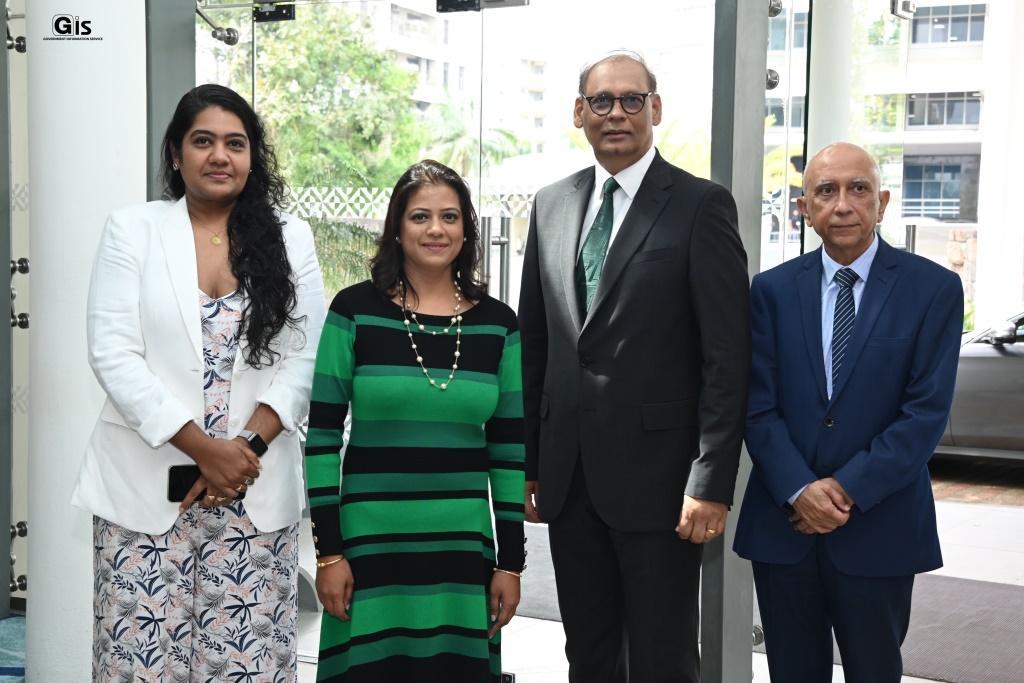Africa-Press – Mauritius. The Environmental, Social and Governance (ESG) Conference, aiming to promote the adoption of sustainable business practices through awareness raising and capacity building, was launched, this morning, at the Hennessy Park Hotel, in Ebène.
The opening of the two-day event, an initiative of the Spaanda company, was graced by the presence of the Minister of Financial Services and Good Governance, Mr Mahen Kumar Seeruttun.
The Director of Climate Change, the Ministry of Environment, Solid Waste Management and Climate Change, Mrs Sarita Meeheelaul; the Founder and Chief Executive Officer of Spaanda, Ms Manjula Basant Rai; participants from Ministries and the private sector; and other personalities also attended the conference.
Minister Seeruttun, in his address, emphasised on the pivotal role of encouraging and supporting corporate businesses in espousing ESG reporting and investing. ESG principles, he affirmed, will assist in addressing the climate crisis.
During the World Leaders Summit in 2021, the Prime Minister, Mr Pravind Kumar Jugnauth, deplored that global warming and rising sea levels represent an existential threat, having potential deleterious repercussions for low-lying islands as Mauritius, he recalled.
This is buttressed in the World Risk Report 2023, whereby Mauritius is ranked as the 106th country most susceptible to disaster risks, he further indicated.
Outlining the scientifically-proven projections and the series of climate-induced disasters, Mr Seeruttun dwelt on urgent measures initiated to reduce 40% of the country’s greenhouse gas emissions.
These include the production of 60% of energy needs from renewable sources and the phasing out of coal utilisation by 2030, the increase of energy efficiency by 10%, the promotion of smart transport systems such as mass transit, and the diversion of 70% of solid wastes from the landfill.
The transition to a circular economy, Mr Seeruttun added, has resulted in the setting up of a national climate change education committee and the contriving of an action plan supportive of sustainability. This action plan, he pointed out, will involve a total funding of USD 6.5 billion till 2030 through external, Government and private support.
In 2021, the World Bank published The Guide For The Issue Of Sustainable Bonds In Mauritius, stipulating the ways to ensure the integrity of the sustainable financing ecosystem in the country and to prevent “green washing”.
Minister Seeruttun, moreover, evoked that a partnership agreement with the Standard Chartered Bank was signed three years back, to develop an overarching framework for sustainable financing in Mauritius.
By integrating environmental management tools into diverse plans such as life cycle assessment, environmental management styles and eco-labelling, the Minister asserted that Mauritius will be able to contribute to the global effort to mitigate and adapt to the implications of climate change.
On this note, he urged key stakeholders such as the Government, regulators and the private sector to discuss the opportunities and challenges of adopting sustainable principles and foster green investment.
Mrs Meeheelaul, on her part, underscored the importance of the conference in informing the businesses about the strategies, action plans, initiatives, financial and legal instruments put in place by Government to facilitate ESG reporting.
As for Ms Rai, she reiterated that the greening of Mauritius cannot be done in silo as it necessitates the collaboration of all the relevant stakeholders.
For More News And Analysis About Mauritius Follow Africa-Press







